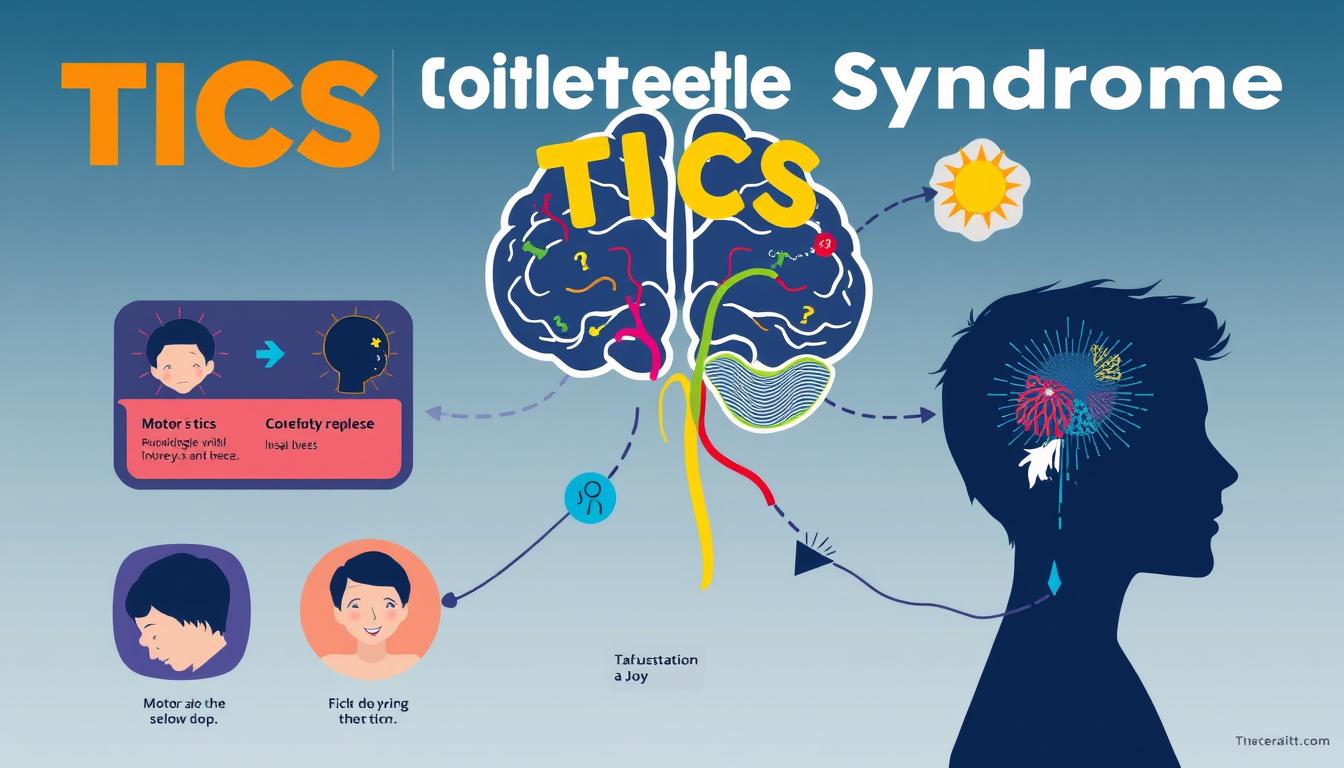Dealing with Obsessive-Compulsive Disorder (OCD) in teens can be tough. Our guide aims to help families and individuals understand this important part of teen mental health. We offer insights and support for those dealing with this complex anxiety disorder.
OCD is more than just repeating actions. It deeply affects a person’s feelings and mind. We’ll dive into the world of OCD, helping parents, teachers, and doctors support teens with these symptoms.
Getting to know OCD takes compassion, knowledge, and teamwork. We want to make this condition clearer, giving teens and their families hope and practical help on their mental health journey.
Key Takeaways
- OCD is a complex mental health condition affecting adolescents
- Early recognition of symptoms is key for effective treatment
- Professional support greatly improves OCD management
- Family support is essential for recovery
- Comprehensive treatment leads to the best results
What is Obsessive-Compulsive Disorder (OCD) in Adolescents
Obsessive-Compulsive Disorder (OCD) is a serious mental health issue that affects many teens. It’s an anxiety disorder with persistent thoughts and compulsive actions. These can make it hard for teens to enjoy their teenage years.
OCD is more than just worrying like any other teen. It’s a cycle of unwanted thoughts that cause a lot of anxiety. Teens feel they must do certain things over and over again. These thoughts can be about being clean or needing things to be perfectly symmetrical.
Common Misconceptions About OCD
- OCD is not just about being neat or organized.
- It’s a serious mental health issue, not a personality trait.
- Teens can’t just stop their compulsive behaviors.
- OCD is not a choice or a sign of weakness.
The Impact of OCD on Daily Life
OCD can mess up a teen’s life in many ways. It affects schoolwork and social life, causing a lot of emotional and practical problems. Teens might spend a lot of time doing rituals or avoiding certain situations because of anxiety.
“OCD is like having a bully inside your brain that never stops talking” – Anonymous Teen
Risk Factors for Developing OCD
- Genetic predisposition
- Brain chemistry differences
- Traumatic life experiences
- Environmental stressors
- Family history of anxiety disorders
Knowing these risk factors helps parents and doctors spot OCD in teens early. This way, they can get the right help sooner.
Early Warning Signs of OCD in Teens
Spotting OCD in teens can be tough. Parents and teachers often miss early signs. It’s key to catch these signs early to help.
Experts say there are important signs to look out for:
- Spending too much time on the same actions over and over
- Feeling very anxious about certain thoughts or situations
- Being very scared of germs or getting sick
- Needing things to be perfectly arranged
- Feeling really upset when things don’t go as planned
Teens with OCD might:
- Wash their hands a lot
- Keep checking things like locks and lights
- Arrange their stuff very carefully
- Have thoughts they can’t stop thinking about
“Finding OCD early can really help a teen’s mental health later on.” – Dr. Emily Richardson, Child Psychologist
Seeing these signs doesn’t mean for sure that a teen has OCD. But it’s a big reason to get them checked out by a pro. It’s best to talk to a mental health expert who knows about teens.
Common Obsessive Thoughts in Adolescents
Teens dealing with OCD symptoms face a tough world of intrusive thoughts. We explore the complex world of obsessive thinking that many silently struggle with.
Obsessive thoughts are unwanted mental experiences that deeply affect a teen’s life. These thoughts are not a choice but a sign of OCD symptoms causing intense distress.
Contamination Fears
Teens with OCD often fear germs and contamination a lot. Their intrusive thoughts might include:
- Excessive worry about touching surfaces
- Constant fear of catching serious illnesses
- Persistent anxiety about personal hygiene
Symmetry and Ordering Obsessions
Some teens develop strict mental patterns about perfect arrangement and balance. These OCD symptoms can show as:
- Compulsive need to align objects precisely
- Overwhelming urge to create perfect symmetry
- Extreme discomfort with perceived disorder
Harmful Thought Patterns
“The mind can be a challenging landscape for teens battling intrusive thoughts.” – Dr. Rachel Martinez, Child Psychologist
Harmful thought patterns might include disturbing images or scenarios that feel deeply distressing. These intrusive thoughts do not reflect the individual’s true character but are manifestations of OCD symptoms that require professional understanding and support.
Recognizing Compulsive Behaviors in Teenagers
It’s important to understand compulsive behaviors to spot OCD in teens. These actions are ways teens deal with anxiety and unwanted thoughts. They help manage their feelings.
But, spotting these behaviors can be tricky. Our guide will show you how to spot them:
- Excessive handwashing or sanitizing
- Repeated checking of locks, appliances, or electronic devices
- Constant counting or arranging objects in specific patterns
- Ritualistic behaviors before performing daily tasks
Teens with OCD might do things that seem odd to others. These actions are not done to be hard to deal with. They are real ways to cope with anxiety.
“Compulsive behaviors are like invisible armor that teens with OCD use to protect themselves from perceived threats.” – Mental Health Research Institute
Look out for these signs of compulsive behaviors:
- Time-consuming rituals that interfere with daily activities
- Significant distress when unable to complete these behaviors
- Increasing complexity of ritualistic actions over time
Watching these behaviors with kindness and understanding is key. Spotting OCD early can help teens get the right help. This can prevent lasting mental health issues.
How OCD Affects Academic Performance
OCD can really mess with a student’s school life. It’s key to manage OCD to see how it affects learning and school life.
Students with OCD face big challenges in school. Their minds are often stuck on worries and habits that make it hard to focus. This makes it tough to do well in school.
Impact on Study Habits
- Spending too much time on homework because of a need for perfection
- Having trouble finishing assignments on time
- Constantly checking and rechecking work
- Feeling really anxious about tests and grades
Social Challenges at School
For teens with OCD, social life can be tough. They might struggle with:
- Being scared of getting sick
- Having trouble joining in with others
- Feeling left out
- Classmates not understanding them
Managing Academic Stress
There are ways to help students with OCD do better in school. These include:
| Strategy | Implementation |
|---|---|
| Academic Accommodations | Longer test times, less homework |
| Counseling Support | Regular meetings with school counselors |
| Communication | Talking openly with parents, teachers, and students |
“Understanding and supporting students with OCD can transform their academic experience.” – Mental Health Professionals Association
With the right help and support, students with OCD can learn to handle school challenges. They can find ways to succeed.
The Role of Parents in Supporting Teens with OCD

Dealing with a teen’s mental health, like OCD, can be tough for families. Parents are key in managing OCD by making a supportive space. This helps their child deal with unwanted thoughts and urges to repeat certain actions.
“Supporting a teen with OCD requires patience, empathy, and consistent communication.”
Our guide aims to help parents support their teen’s mental health journey. Knowing about OCD is the first step to real support.
- Learn about OCD triggers and symptoms
- Create a calm, non-judgmental home environment
- Develop open communication channels
- Seek professional guidance
Parents should watch for signs of anxiety and not criticize. They should also show emotional support. Getting help from professionals can greatly help a teen’s mental health.
| Parent Support Strategies | Positive Outcomes |
|---|---|
| Active listening | Increased teen trust |
| Educational support | Reduced academic stress |
| Professional counseling | Improved coping mechanisms |
| Family therapy | Enhanced family communication |
Supporting a teen with OCD is a team effort. Mental health experts can offer specific advice for your family.
Professional Treatment Options Available
Finding the right OCD treatment can be tough for teens and their families. Our guide looks at professional ways to help manage obsessive-compulsive disorder.
Every teen needs a treatment plan that fits their unique situation. Mental health experts usually suggest a mix of proven methods to help.
Cognitive Behavioral Therapy Approaches
Cognitive-behavioral therapy is key in treating OCD. It helps teens change their thought patterns. Important techniques include:
- Exposure and response prevention therapy
- Cognitive restructuring
- Identifying trigger patterns
- Developing coping mechanisms
Medication Management
Medications can help manage OCD symptoms. SSRIs are often used to lessen anxiety and compulsions. Our team watches how well the meds work and any side effects.
Alternative Treatment Methods
We also value holistic OCD treatments. These can include:
- Mindfulness meditation
- Family therapy
- Support group participation
- Stress reduction techniques
“The right treatment plan can transform a teenager’s life, helping them regain control and confidence.” – OCD Treatment Specialist
Getting help from skilled mental health professionals is important. They create a plan that meets each teen’s needs, helping them on their path to wellness.
Building Coping Strategies for Daily Management
Managing OCD needs a full plan to help teens deal with their anxiety. We know how tough it is for them to handle intrusive thoughts and compulsive behaviors.

We suggest strategies that empower teens to manage their mental health. Here are some key ways to handle OCD symptoms:
- Practice mindfulness meditation to reduce anxiety
- Develop a structured daily routine
- Use cognitive reframing techniques
- Create a support network with family and friends
“Every small step towards managing your OCD is a victory worth celebrating.” – Mental Health Expert
Learning skills to fight obsessive thoughts is key to OCD management. We suggest the following approach:
| Strategy | Purpose | Implementation |
|---|---|---|
| Exposure Response Prevention | Reduce anxiety triggers | Gradually face fears with professional guidance |
| Cognitive Restructuring | Challenge negative thought patterns | Replace irrational thoughts with realistic perspectives |
| Stress Management | Control anxiety levels | Practice relaxation techniques and regular exercise |
Remember, managing anxiety disorders is a journey of continuous learning and growth. Getting help from professionals can offer more tools and strategies for your needs.
The Connection Between OCD and Other Mental Health Conditions
Obsessive-compulsive disorder (OCD) is often found alongside other mental health issues in teens. Our studies show that anxiety disorders and other challenges can deeply affect a teenager’s mental health.
Teens with OCD often face other mental health problems too. These issues can make their emotional lives very complex. They need understanding and specific help to manage these challenges.
- Depression often goes hand in hand with OCD in teens.
- Anxiety disorders often happen with OCD symptoms.
- Eating disorders can also appear with OCD behaviors.
“Understanding the complex links between mental health issues is key to effective treatment.” – Child Psychology Research Institute
Experts agree that treating multiple conditions at once is best. This way, we can offer better support to teens dealing with complex mental health issues.
Some common conditions that link with OCD include:
- Generalized Anxiety Disorder
- Social Anxiety
- Panic Disorder
- Trichotillomania
We focus on detailed assessments to understand these complex relationships. Early treatment and a combined approach can greatly help teens’ mental health.
Creating a Supportive Environment at Home and School
Managing OCD in teens needs a team effort. A caring home and school setting is key. It makes teens feel heard and strong in their fight against OCD.

Family Communication Strategies
Talking openly and kindly is vital for teens with OCD. Here are some important tips:
- Listen actively without judging
- Accept their feelings and what they go through
- Learn about OCD to get their struggles
- Don’t criticize or downplay their issues
“Understanding is the first step towards healing” – Mental Health Expert
Working with School Staff
Working together with teachers can really help a student. Here’s what we advise:
- Set up meetings with school counselors
- Create plans that fit their needs
- Tell teachers about their OCD needs
- Ask for updates on their progress
Peer Support Systems
Having friends who get it can make a big difference. Look into support groups and workshops. Also, connect with others who face similar challenges.
Remember, a supportive environment is a powerful tool in adolescent OCD management.
Long-term Outlook and Recovery Journey
OCD doesn’t have to control your life forever. Many teens find ways to manage their OCD symptoms. They use treatments that bring hope and healing.
Every person’s recovery is different. But with the right treatment and ongoing management, teens can live better lives. They can enjoy a higher quality of life.
Recovery isn’t about getting rid of OCD completely. It’s about learning to cope with it. Our goal is to set realistic goals and make progress that lasts.
Successful management includes:
- Regular therapy sessions
- Medication when needed
- Support from family
- Learning new coping skills
“Recovery is a journey, not a destination” – Mental Health Professionals
Studies show good results for teens with OCD treatment plans. Early help and tailored approaches can greatly lessen symptoms.
| Treatment Approach | Potential Improvement | Long-term Impact |
|---|---|---|
| Cognitive Behavioral Therapy | 60-80% symptom reduction | Enhanced life skills |
| Medication Management | 50-70% symptom control | Improved emotional regulation |
| Integrated Treatment | Up to 90% positive outcomes | Comprehensive wellness |
The path to managing OCD is filled with hope, support, and continuous personal growth.
Conclusion
Our journey into understanding Obsessive-Compulsive Disorder (OCD) in teens shows how complex it is. It’s important to know that OCD is not a choice but can be treated. This knowledge helps support young people going through tough times.
Supporting teen mental health needs care and knowledge. With professional help, family backing, and proven methods, teens can find ways to cope. Starting early and talking openly are key to managing OCD symptoms.
Learning and caring about OCD can help a lot. We need to fight stigmas, spread understanding, and make places where teens feel okay to ask for help. With the right help, teens can grow strong, develop good mental health habits, and live happy lives.
Every teen’s battle with OCD is different. Our dedication to understanding, supporting, and empowering them can greatly improve their mental health and happiness.



